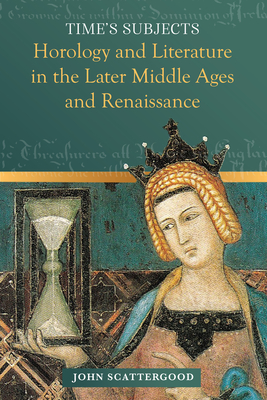Time's Subjects: Horology and Literature in the Later Middle Ages and Renaissance

Time's Subjects: Horology and Literature in the Later Middle Ages and Renaissance
There is ample evidence, from the earliest periods onwards, that mankind has sought to measure and organize temporal movement by means of intellectual theories about historical sequences and the contours of peoples' lives, as well as by practical literary instruments such as calendars, almanacs, and a variety of physical timekeeping devices such as sundials, astrolabes, flame-clocks, hour-glasses, and water-clocks. But in the late thirteenth century and early fourteenth century, because of developments in physics and mechanics, it became possible to develop mechanical clocks, timekeeping machines independent of natural phenomena like the sun, moon, and stars, daylight and darkness. This book seeks to describe the impact of these instruments on the theological, philosophical, political, social, moral, and personal thinking of the period from the thirteenth to the seventeenth centuries, and the way that this thinking was expressed, mainly in English texts, but in other linguistic cultures too.
PRP: 453.33 Lei
Acesta este Prețul Recomandat de Producător. Prețul de vânzare al produsului este afișat mai jos.
408.00Lei
408.00Lei
453.33 LeiLivrare in 2-4 saptamani
Descrierea produsului
There is ample evidence, from the earliest periods onwards, that mankind has sought to measure and organize temporal movement by means of intellectual theories about historical sequences and the contours of peoples' lives, as well as by practical literary instruments such as calendars, almanacs, and a variety of physical timekeeping devices such as sundials, astrolabes, flame-clocks, hour-glasses, and water-clocks. But in the late thirteenth century and early fourteenth century, because of developments in physics and mechanics, it became possible to develop mechanical clocks, timekeeping machines independent of natural phenomena like the sun, moon, and stars, daylight and darkness. This book seeks to describe the impact of these instruments on the theological, philosophical, political, social, moral, and personal thinking of the period from the thirteenth to the seventeenth centuries, and the way that this thinking was expressed, mainly in English texts, but in other linguistic cultures too.
Detaliile produsului











